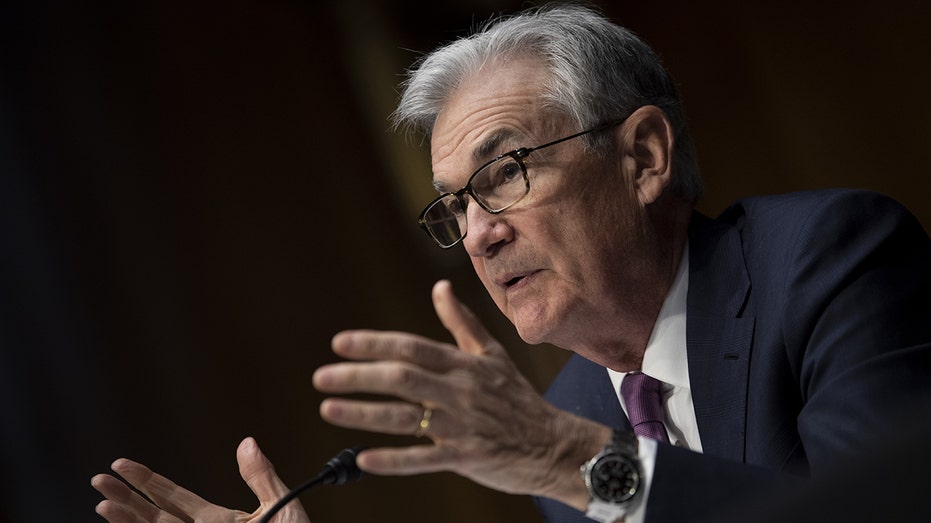Fed likely to pave the way for March rate hike at key meeting this week
Economists expect the Fed to raise rates four times this year
Fed rate hikes starting in March a 'high probability': Fmr. Federal Reserve governor
Chicago Booth professor of economics and former Fed governor Randall Kroszner weighs in on Federal Reserve chair Jerome Powell's intentions to raise interest rates; Revere Securities' Scott Fullman shares his stock picks.
The Federal Reserve is expected to signal its first interest rate hike in three years during a pivotal two-day meeting this week, opening the door to a March liftoff as policymakers seek to combat the hottest inflation in four decades.
There is broad support among central bank officials to begin aggressively normalizing policy amid growing concern over the rapid increase in consumer prices, which surged 7% in December, the Labor Department said earlier this month. It marked the fastest pace for inflation since 1982 as consumer demand confronts a shortage of goods caused by congested ports and other pandemic-induced disruptions in the supply chain.
SURGING INFLATION TAKES HOLD IN MOUNTAIN STATES, WITH RATES NEAR 9%
The Fed began tapering its bond purchases in November by $15 billion a month, and announced during its December meeting that it would double that to $30 billion beginning in January. Under that timeframe, the central bank is poised to conclude the program by March, allowing Fed officials to begin hiking interest rates and reducing the $8.8 trillion balance sheet.
"It is really time for us to move away from those emergency pandemic settings to a more normal level," Chairman Jerome Powell said earlier this month while testifying before the Senate Banking Committee. "It’s a long road to normal from where we are."

Jerome Powell, chairman of the U.S. Federal Reserve, speaks during a Senate Banking, Housing, and Urban Affairs Committee confirmation hearing in Washington, D.C., U.S., on Tuesday, Jan. 11, 2022. (Photographer: Brendan Smialowski/AFP/Bloomberg via Getty Images / Getty Images)
Most economists expect the Fed to raise rates four times this year.
Economic projections from the Fed's December meeting show that officials expect rates to stand at 0.9% at the end of 2022, 1.6% at the end of 2023 and 2.1% at the end of 2024. Traders are already pricing in a more than 90 % chance of a rate increase during the Fed's mid-March meeting, and a roughly 65% chance of four hikes over the course of the year, according to the CME Group, which tracks trading.
"The policy objective at Wednesday’s meeting will be to prepare market participants for the major shift in policy that lies ahead: a rate hike in March, another in June, and a balance sheet runoff likely to start in June or July," said Joe Brusuelas, RSM chief economist.

This May 4, 2021, file photo shows the Federal Reserve building in Washington. Federal Reserve officials agreed at their last meeting that if the economy continued to improve, they could start reducing their monthly bond purchases as soon as next mon (AP Photo/Patrick Semansky / Associated Press)
Some economists believe the Fed waited too long to confront the burst in inflation, while others have expressed concerns that moving too quickly to stabilize prices risks slowing hiring and potentially leaving many workers, particularly lower-income Americans, without a job. Hiking interest rates tends to create higher rates on consumers and business loans, which slows the economy by forcing employers to cut back on spending.
GET FOX BUSINESS ON THE GO BY CLICKING HERE
"The hawkish tone of the FOMC minutes suggests that the central bank is concerned about inflation, but a removal of Fed stimulus may not be enough to calm inflation, which is largely being caused by supply chain disruptions, something the Fed can’t control," Nancy Davis, founder of Quadratic Capital Management, said.
The Fed meeting will also take place in the shadow of an extremely volatile week for the stock market, with the Dow Jones Industrial Average on Monday plunging more than 1,000 points to its lowest level in 10 months before clawing its way back.
Powell will brief the media during an hour-long press conference following the FOMC decision, which will be released on Wednesday at 2 p.m. ET.





















